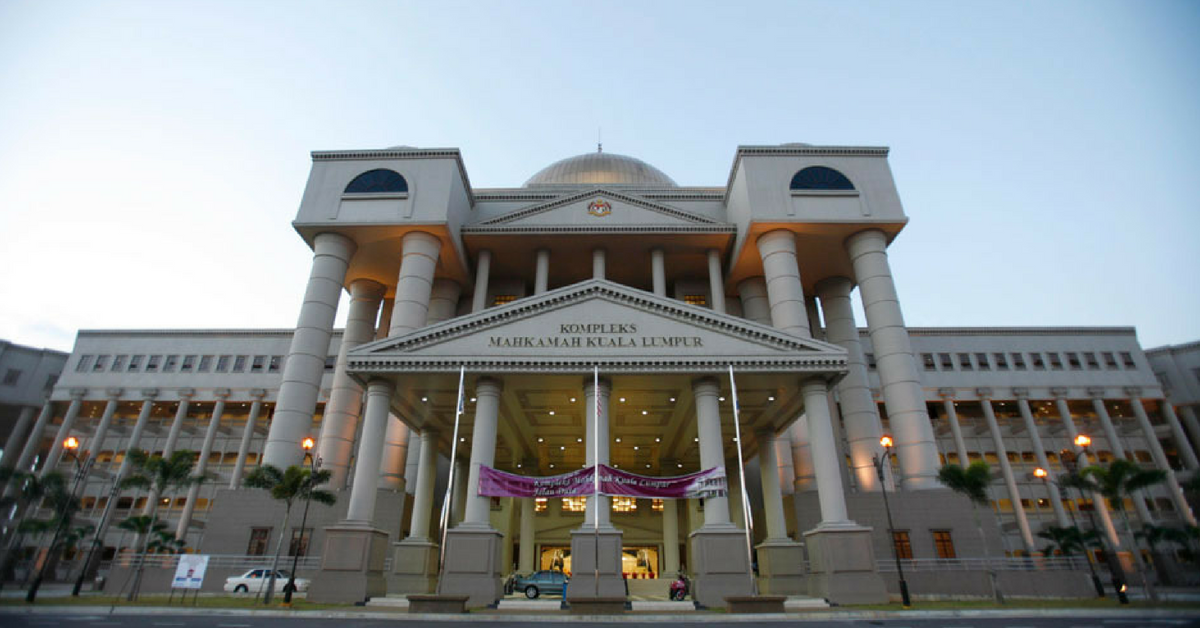- A former candidate for the Certificate of Legal Practice in Malaysia gives an account of their experience.
- Many law graduates are now turning toward overseas qualifications in a bid to escape the drawbacks of the the Malaysian system.
The recent round of examinations for the Certificate of Legal Practice (CLP) for 2018 was held at the University of Malaya campus on July 17. Now, prospective lawyers have to suffer through the waiting process before results are released, usually in about 2 months.
I will not be waiting in anticipation, even though I was one of the candidates.
I had already made up my mind not to pursue a career as a practising advocate and solicitor in Malaysia months before the examinations. Prepping for and completing the examinations had more to do with desiring to finish what I started, than anything to do with being a practising lawyer.
If you’ve been a candidate for the CLP, then perhaps you’ll share my gripes; or perhaps you won’t—everyone has their own path to forge, after all.
Infamous
The CLP is an examination that is pretty infamous in Malaysia, at least to those that actually know of its existence. The infamy can be attributed to a simple feeling for most: unfairness.
Many past candidates may agree with me on how it is a poorly designed tool of assessment, totally disregarding the importance of vocational training, understanding of systems and anything other than a bare test of memory.
It’s important to understand that the profession of lawyers in Malaysia is regulated by the Malaysian Bar Council while entry into the profession is governed by the the Legal Profession Qualifying Board (LPQB).
As governed by the latter, one must have the necessary qualifications in order to be considered a “Qualified Person” (s. 5 Legal Profession Act 1976), whereupon you may undergo pupillage for a period of 9 months.
Dictionary Time: A pupillage is the final stage of training to be a lawyer.
There are several avenues for one to be “called to the Bar” in Malaysia.
Graduates with law degrees from local institutions including University of Malaya, International Islamic University, MARA, University Utara Malaysia and the Multimedia University are eligible, after completing pupillage.
However, holders of law degrees from selected international universities (whether they pursued them locally or not) are only considered to be “qualified persons” after attaining a CLP.
The CLP requirement is also applicable to selected Australian law degrees, along with universities from New Zealand. Before moving on, it’s pertinent here to note several interesting facts on the CLP:
- The percentage of candidates that pass the examinations is notoriously low, with The Star reporting only 40.81% pass rate in 2012. While data from the later years isn’t attainable at the moment, it has been said that the passing rate of the CLP is approximately 40% every year.
- There have been unsubstantiated (so far) claims that there is, in effect, a quota being enforced by the LPQB in order to regulate the number of lawyers that have international qualifications as opposed to local qualifications.
- On December 7, 2016, the LPQB decided in a meeting that there would be an amendment to one of the papers of the CLP, but only announced this change on May 25, 2017—a whole 6 months later, barely 2 months before the 2017 examinations. Fortunately, this decision was later delayed to the 2018 examinations.
- In order to pass the examinations, candidates must pass ALL 5 subjects in one sitting. Passing 4 out of 5 results in a conditional pass, where the candidate is allowed to retake the one failed subject. Any less than 4 passes, and you’re required to retake the entire examinations the following year.

Let’s Talk About Qualifications
From this selection of non-government university graduates who have to take the CLP, the LPQB requires a Year 12-equivalent qualification from the candidates. This include the STPM, A-Levels, SAM, AUSMAT and others.
However, there has been a lack of clarity at times with this requirement, as shown by the recent dispute on the recognition of the Unified Examination Certificate (STPM-equivalent of choice by Private Independent Chinese Secondary Schools).
Potential candidates have complained that the requirement on the LPQB website where “any other qualifications which may be accepted by the Qualifying Board as equivalent to STPM” is one that is too grey in nature.
I personally know one candidate (without that STPM-equivalent; he took a diploma instead) who enquired with the LPQB if he could take the A-Levels. He had already obtained his law degree, but still needed to meet this requirement. He was rejected, and wasn’t able to continue on in the profession.
LPQB’s site or other authorities has no further clarifications to offer on the issue, which further confuses things.
Lawyers, students, and others in the industry have been clamouring for a standardised Bar exam for ALL law graduates for quite some time now—this article from the Malaysian Bar in 2008 states that the Common Bar Course will replace the CLP. Yes, you read that right, this is a decade-old article.
Why I Steered Clear
When I graduated with a Bachelor of Laws from a university in the UK, I considered applying for the Bar Professional Training Course, as this UK qualification would exempt you from taking the CLP.
However, the rising costs of education overseas coupled with advice that the CLP would align more with my intention to practise locally led to me opting for the latter. Fast forward one year, and I have become totally disillusioned with the system.
Side note: The 9-month period of pupillage that is required to be completed is also, in my opinion, a tad over-the-top. Pupils are regularly required to work 12 hour days, weekends included, and are not allowed to be given ANY leave. According to a lawyer that I interviewed with once, even sick/compassionate leave would result in the pupillage being extended by that number of days.
Ultimately, when you have some lawyers who have qualified via the CLP, other lawyers who have taken the the Bar exam overseas, and more lawyers who have qualified with just their degrees from local universities, there will be an erosion of the standards that a professional body should strive to adhere to.
What has become apparent is the need for a Common Bar Exam, that everyone who wishes to join the legal profession, regardless of background, would be required to take.
There is absolutely nothing wrong with Malaysian lawyers, merely the system that governs who gets to be one. And I no longer want to be a part of it.
This guest post was submitted by J, a former CLP candidate who wishes that more people knew about the realities of the system. The views expressed in this article are the writer’s own, and do not necessarily reflect the views of the publication.
Feature Image: KL Bar








